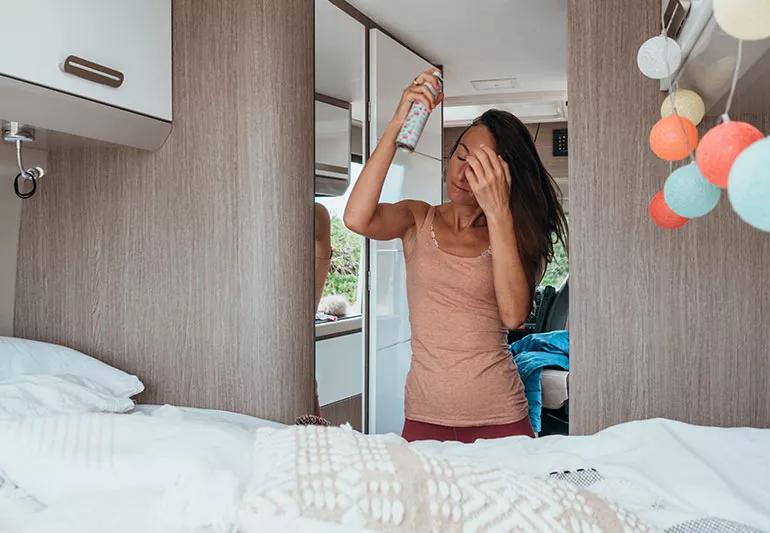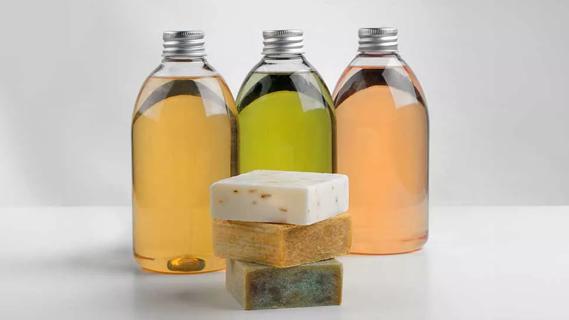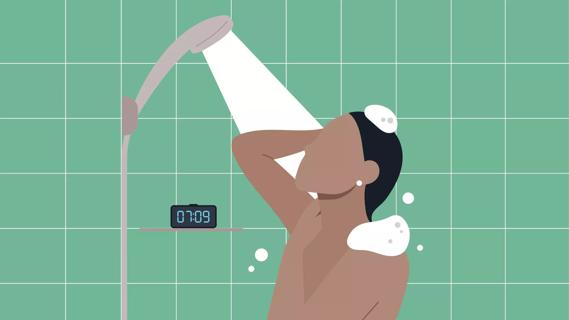It’s not a substitute for good old washing and rinsing

You just got in a quick workout, so you give your hair a spritz of dry shampoo. You woke up late without time to shower, so you spray in some dry shampoo. You’re feeling a little greasy while you’re traveling, so — you guessed it — you turn to your trusted friend, dry shampoo.
Advertisement
Cleveland Clinic is a non-profit academic medical center. Advertising on our site helps support our mission. We do not endorse non-Cleveland Clinic products or services. Policy
This ingenious beauty product advertises some of the same benefits as its bath-time counterpart. But does dry shampoo do as good of a job as regular shampoo? The short answer is no, dry shampoo can’t replace shampooing and rinsing your hair clean.
Dermatologist Wilma Bergfeld, MD, explains what you need to know about refreshing your tresses with dry shampoo and why it’s not a substitute for the real thing.
These alcohol- or starch-based sprays nix the grease and oils in your hair while adding volume. Some dry shampoo products deliver the drying agents through an aerosol spray, while others provide tinted powder to match your hair color.
Fun fact: You can actually get the same effect by shaking cornstarch into your hair! But using an aerosol spray is, of course, a little easier and less messy.
It’s pretty simple, actually. “The alcohol or starch in the product soaks up the excess oil and grease in your hair, giving it a cleaner, fresher appearance,” Dr. Bergfeld explains.
At first, dry shampoo makes your hair look and feel fresher and less greasy. But it’s important to know that the “shampoo” part is sort of a misnomer, as dry shampoo doesn’t actually clean your hair. For that, you’ll need wet shampoo and water.
Advertisement
A little bit of dry shampoo is OK, and it’s safe for all types of hair. But does adding that dry powder every few days actually keep your hair and scalp healthy? Dr. Bergfeld says no — not for long, anyway.
“The scalp collects chemicals and pollutants both from the air and from cosmetic care products,” she explains. “Dry shampoo freshens your hair by removing oils, but its actual cleansing power is only minimal.”
There are some risks associated with using a lot of dry shampoo, though, as well as going too long without wet-washing your hair.
If you’ve ever used a little too much dry shampoo, you know the feeling: Your hair looks fresher than it did before, but it feels weird — kind of grainy, almost sandy. That’s filmy residue building up on your scalp, and it can cause a variety of problems.
Dr. Bergfeld highlights some of the issues that your dry shampoo habit can cause.
Going too long without washing your hair can result in dandruff and other kinds of scalp irritation, too. “You have to wash or shampoo the scalp once in a while to have healthy hair and scalp skin,” Dr. Bergfeld reiterates.
The bottom line is that your hair can get kind of gross — and only a wet shampoo can truly cleanse your scalp. Wet shampooing cleanses the dirt, bacteria and yeast that builds up on your scalp, as well as residue from products.
“Dry shampooing has its place, but it can’t replace wet shampoo,” Dr. Bergfeld says. “Your hair and scalp need to be washed and rinsed intermittently to keep it clean.”
But Dr. Bergfeld acknowledges that there are times when dry shampoo is your best option. If you’re traveling or camping and a shower isn’t available, or if you’re injured or ill and unable to bathe, this type of product can help maintain your hair and scalp.
But only for a little while. And you shouldn’t use dry shampoo for several days in a row.
If you choose to use dry shampoo, here are ways to minimize its appearance and impact on your hair:
Advertisement
Learn more about our editorial process.
Advertisement

Bathing once a day is the general guidance, but you could also have reasons to soap up twice a day or not at all

You’re sharing your sheets with dust mites, bacteria and lots of dead skin, so you’ll want to keep your bedding fresh

You may notice itching, redness and swelling after wearing or using laundered items

We don’t fully understand how cleanliness impacts immune system development, but we do know that preventing illness is important

How often you lather up your locks can depend on various factors, like hair type, age and ethnicity

An icy blast may boost mental clarity, increase circulation and give your skin a little glow — but don’t overdo it

This olive oil-based soap is generally mild and safe when diluted

It’s a wash — when you bathe is a personal preference

Wearing a scarf, adjusting your outdoor activities and following your asthma treatment plan can help limit breathing problems

Your diet in the weeks, days and hours ahead of your race can power you to the finish line

When someone guilt trips you, they’re using emotionally manipulative behavior to try to get you to act a certain way